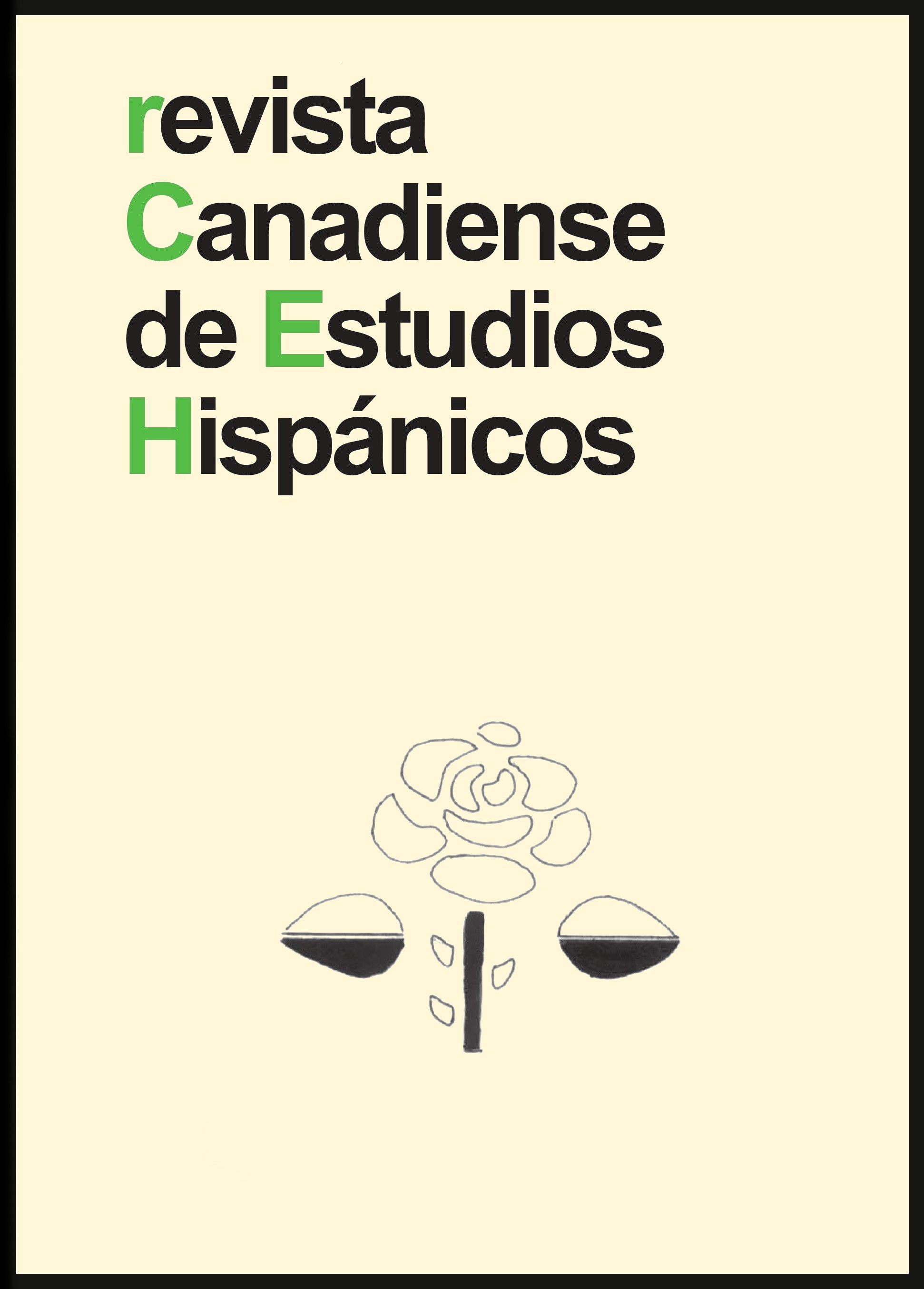Hotel Heterotopia: The Locus of Crisis in El hombre solo and Esos cielos by Bernardo Atxaga
DOI:
https://doi.org/10.18192/rceh.v46i2.4899Keywords:
Basque conflict, contemporary Peninsular novel, heterotopia, identityAbstract
In this article, I expand upon Olaziregi’s foundational investigation of heterotopias in El hombre solo (1994) in order to further elaborate on the function of the hotel site in both this and Atxaga’s subsequent 1995 novel, Esos cielos. Through a comparative analysis of these novels – both foundational texts in the development of new narrative of the Basque conflict in the nineteen-nineties – I argue that the hotel functions as a heterotopia of crisis, and that the protagonists’ presence there catalyzes the fundamental dilemma of contemporary Basque identity lying at the heart of both novels.
References
ATXAGA, BERNARDO. El hombre solo. Barcelona: Delbolsillo, 2016.
ATXAGA, BERNARDO. Esos cielos. Barcelona: Delbolsillo, 2016.
ATXAGA, BERNARDO. “‘La tensión en torno a literaturas como la vasca sigue siendo grande’: Conversación con Bernardo Atxaga.” El mundo está en todas partes: la creación literaria de Bernardo Atxaga. Eds. Iker González-Allende and José Ángel Ascunce Arrieta. Barcelona: Anthropos Editorial, 2018. 23-48.
BALLESTEROS, ISOLINA. “Counted Days for the Lone Man: Decentred Masculinity and Ideology Fatigue in ‘El Hombre Solo’ (1994), by Bernardo Atxaga, and ‘Días Contados’ (1994), by Imanol Uribe.” Anales de la Literatura Española Contemporánea. 27.2 (2002): 291-316.
BHABHA, HOMI K. The Location of Culture. London: Routledge, 1994.
FOUCAULT, MICHEL. “Des Espaces Autres.” Empan 54.2 (2004): 12-19. Web.
GABILONDO, JOSEBA. “Terrorism as Memory: The Historical Novel and Masculine Masochism in Contemporary Basque Literature.” Arizona Journal of Hispanic Cultural Studies 2 (1998): 113–46. Web.
KORTAZAR, JON. Bernardo Atxaga: Basque Literature from the End of the Franco Era to the Present. Reno: Center for Basque Studies Press, University of Nevada, 2005.
LASAGABASTER, JESÚS MARÍA. “Introduction.” Contemporary Basque Fiction: An Anthology. Reno: U of Nevada P, 1990. 1-24.
LÓPEZ DE ABIADA, JOSÉ MANUEL. “Relectura de Obabakoak y calas en ‘Nueve palabras enhonor del pueblo de Villamediana.’” El mundo está en todas partes: la creación literaria de Bernardo Atxaga. Eds. Iker González-Allende and José Ángel Ascunce Arrieta. Barcelona: Anthropos Editorial, 2018. 69-87.
MARTÍN, ANNABEL. “La gramática de la duda: opacidad y transparencia terrorista en El hombre solo, de Bernardo Atxaga.” El mundo está en todas partes: la creación literaria de Bernardo Atxaga. Eds. Iker González-Allende and José Ángel Ascunce Arrieta. Barcelona: Anthropos Editorial, 2018. 109-26.
NÚÑEZ, XOSÉ-MANOEL. “Regions, Nations and Nationalities. On the Process of Territorial Identity-Building during Spain’s Democratic Transition and Consolidation.” Spanish and Latin American Transitions to Democracy. Eds. Carlos Horacio Waisman and Raanan Rein. Sussex: Sussex Academic Press, 2005. 55-79.
OLAZIREGI, MARI JOSE. “Literature and Political Conflicts: The Basque Case.” The International Legacy of Lehendakari Jose A. Aguirre’s Government. Reno: Center for Basque Studies Press, University of Nevada, 2017. 251-77.
OLAZIREGI, MARI JOSE. Waking the Hedgehog: The Literary Universe of Bernardo Atxaga. Reno: Center for Basque Studies Press, University of Nevada, 2005.
PERRET, SALLY. “La prisionera se hace traidora: las categorías políticas y la mirada refractada en Esos cielos, de Bernardo Atxaga.” El mundo está en todas partes: la creación literaria de Bernardo Atxaga. Eds. Iker González-Allende and José Ángel Ascunce Arrieta. Barcelona: Anthropos Editorial, 2018. 127-40.
THROND, MARY. “A Lost Voice Remembered. María Teresa León’s Triumph.” Exile through a Gendered Lens: Women’s Displacement in Recent European History, Literature, and Cinema. Eds. Maureen Tobin Stanley and Gesa Zinn. New York: Palgrave Macmillan, 2012. 39-58.
TREMLETT, GILES. Ghosts of Spain. London: Faber and Faber, 2006.
Downloads
Published
Issue
Section
License
Copyright (c) 2024 Alison Posey, Alison Posey

This work is licensed under a Creative Commons Attribution 4.0 International License.
Aquellos/as autores/as que deseen publicar en la RCEH o tengan publicaciones en esta revista aceptan los siguientes términos:
- La RCEH solo publica artículos inéditos.
- Los artículos enviados a la RCEH no deben estar bajo consideración en ninguna otra revista o editorial.
- Los/as autores/as podrán incluir imágenes cuando las consideren esenciales para su estudio. Es responsabilidad suya el obtener por escrito la autorización para su reproducción y presentarla a la RCEH.
- Los/as autores/as conservarán sus derechos de autor y garantizarán a la RCEH el derecho de primera publicación de su obra, el cuál estará simultáneamente sujeto a la Licencia de reconocimiento de Creative Commons que permite a terceros compartir la obra siempre que se indique su autor y su primera publicación en la RCEH.
- 12 meses después de la publicación de su obra en la RCEH, los/as autores/as podrán adoptar otros acuerdos de licencia no exclusiva de distribución de la versión de la obra publicada (p. ej.: depositarla en un archivo telemático institucional o publicarla en un volumen monográfico) siempre que se indique la publicación inicial en esta revista.


